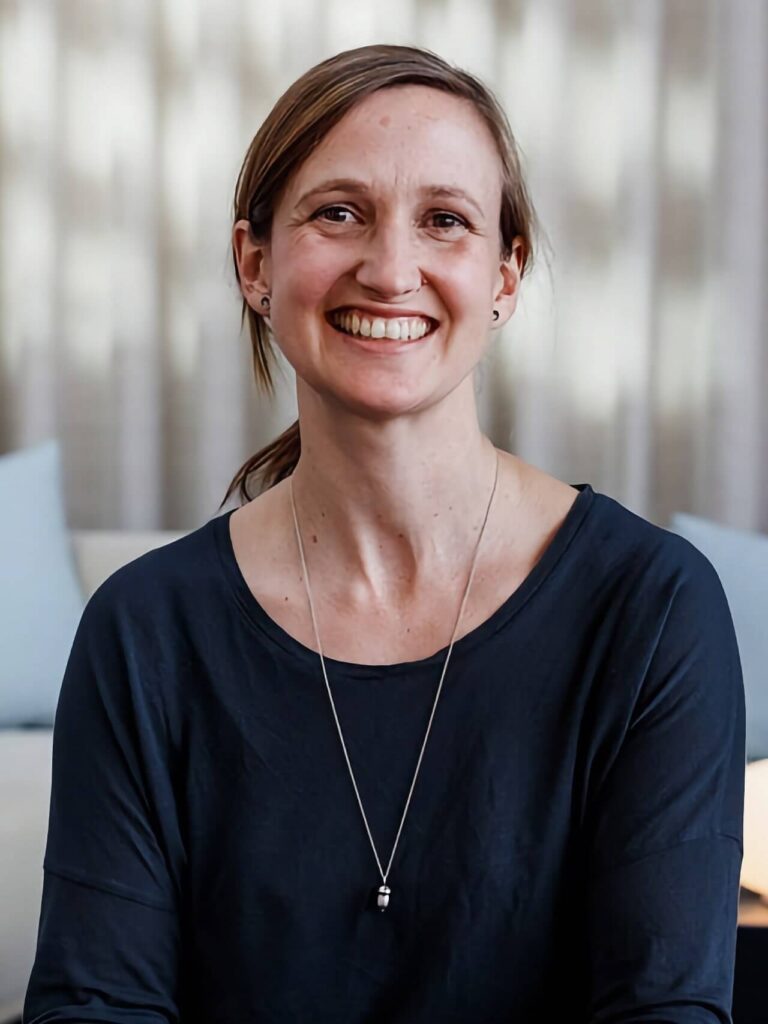Anxiousness won’t solve the climate crisis
Nan Kjellberg is well-aware that our planet is in a critical state. She was raised by parents who were environmental activists and she works everyday with sustainability, so you wouldn’t hold it against her would she have a gloomy outlook on the future. But it’s quite the opposite – she’s energized.

Don’t you get anxious about the climate crisis?
“Of course I do. I get discouraged sometimes, but I remain optimistic. I recognize that we are unlikely to reverse the trend, but I still think you have to trust that humanity both can and will adapt – in one way or another. We’ll have to wait and see how it will turn out, but historically humanity has always adapted. The last few decades are just a parenthesis in our history, where we have created a society that won’t last. But we have been high on fossil fuels for far too long now. We have become life-long addicts, and we are slowly coming to terms with the fact that we need to go into rehab.”
Is this hopeful outlook a way for you to cope?
“No, I think we need both excitement and anxiousness. Perhaps not anxiousness, but at least dystopian scenarios. Just to face the fact that this could be the end. But hearing that over and over again won’t spark a solution. You need to hear positive stories to gain the hope and excitement needed to make a change.”
We have become life-long addicts, and we are slowly coming to terms with the fact that we need to go into rehab
Where do you get your inspiration from?
“I don’t think I need that much inspiration. We live in such an exciting time! Our idea of constant progression has been turned up-side-down and we’re at a crossroads where we need to turn each stone to come up with a solution. It’s very melodramatic, but it’s also very exciting.”
Where does your interest in sustainability come from?
“I think you have to look at my childhood. Growing up, we lived in an old school building in the middle of nowhere, with goats, pigs and lots of other animals. My parents were part of the so-called “gröna vågen” (a ‘hippie-ish’ counterurbanization movement in Sweden during the 1970’s). My father grew up in France, close to Paris where he graduated from college in 1968. He later moved to Sweden and got a degree in biology. I guess this background explains why me and my siblings were raised to be both politically aware and to take care of this planet.”
How do you bring that to The Absolut Company?
“Before I go into areas where we can improve, I have to stress the fact that our distillery is about as energy efficient and emission free as a distillery gets. That being said, we can always find ways to improve. But it also means that our carbon footprint is not determined by our production to the same extent as it was before. We’re one of the biggest buyers of grain in the area, which leaves a footprint that stretches well beyond our distillery, so I mostly focus on our suppliers. I try to find new, more sustainable, alternatives, and I want to influence existing suppliers to become even more sustainable.”
You’re an environmental engineer. Do you identify more with the environment part or the engineer part?
“Definitely environment. That’s who I am. The other part is more about method and a title. To give you an idea: a few years ago, my family had to convince me to leave some lamps on at home as a burglary protection. I was reluctant to use them, just to save energy. I can be quite persistent sometimes, and small stuff like that can become a huge thing for me, because I have that way of thinking built-in.”
“I have a personal interest in sustainability too, and part of me also believes that you can’t become really good at something if you only want to spend eight hours a day on it. I came to that conclusion when I was working with risk management earlier in my career. It was only a job, so I decided to quit and pursue my passion instead. I can spend hours reading about the latest findings and trends in sustainability, even in my spare time.”
If I tell them they need new clothes, they don’t ask which store we should go to. They ask me when the next flea market is
Have you embraced the principles your parents taught you?
“I guess I have to an extent. Even though I know I can’t compete with them when it comes to consuming as little as possible, I’ll always have their way of thinking in the back of my mind. As children, we were taught to always safeguard the resources we had, and inevitably I’ve passed that thinking on to my own children. If I tell them they need new clothes, they don’t ask which store we should go to. They ask me when the next flea market is. I don’t think they’ve even been to a clothing store. But I try not to let it go overboard. I don’t push them into only one way of thinking, I try to inform and encourage them into being aware.”